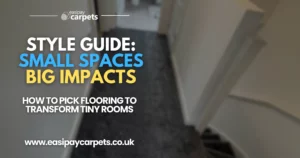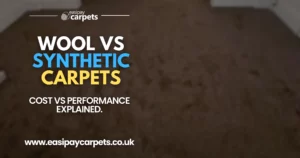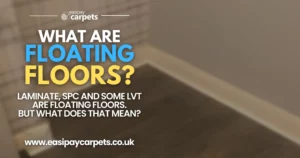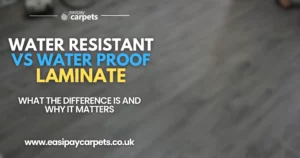
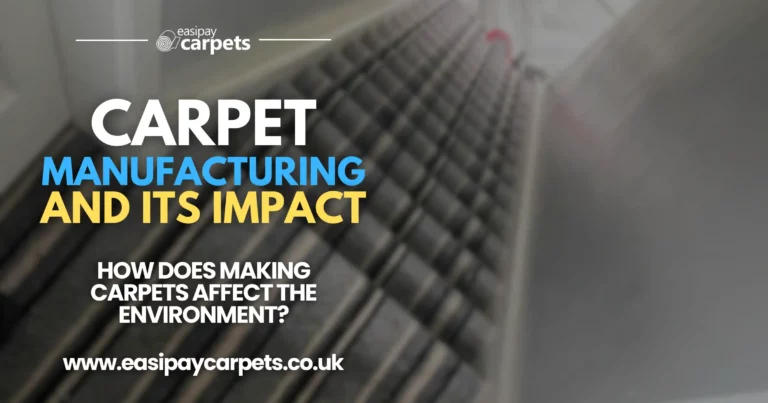
The Environmental Impact of Carpets: Understanding and Mitigation
Carpets have long been a staple in homes and offices across the globe, prized for their comfort and aesthetic versatility. However, as environmental concerns become increasingly urgent, it’s important to consider the ecological footprint of every aspect of our lives—including our choice of flooring. This post delves into the environmental impact of carpets and provides guidance on how to choose and manage carpets in a way that minimizes their ecological impact.
The Environmental Footprint of Carpet Manufacturing
Raw Materials
The production of carpets primarily involves synthetic materials like nylon, polyester, and polypropylene, all of which are derived from petroleum, a non-renewable resource. The extraction and processing of these materials are energy-intensive and release significant amounts of CO2 and other pollutants.
Water Usage
Carpet production, especially when involving wool and certain synthetic fibres, can be water-intensive. Dyeing and treatment processes require substantial amounts of water, contributing to the overall environmental impact.
Chemicals in Production
Dyeing carpets and treating them for stain resistance often involves chemicals that can be harmful to the environment. Some of these substances may lead to water and soil contamination if not managed properly.
End-of-Life Issues
Waste Generation
A significant environmental issue with carpets is their disposal. Most end up in landfills where they can take centuries to decompose. Synthetic carpets do not biodegrade, and as they slowly break down, they can release toxic substances into the environment.
Recycling Challenges
Although carpet recycling facilities exist, the process is complex and not universally accessible. Different materials and chemicals in carpets make recycling costly and labor-intensive, and only a fraction of carpets are currently recycled.
Reducing the Environmental Impact
Choosing Eco-Friendly Carpets
- Natural Fibres: Opt for carpets made from natural fibres like wool, sisal, jute, or organic cotton, which are more sustainable and have a smaller environmental footprint.
- Recycled Materials: Some carpets are made from recycled materials, such as PET plastic bottles or other post-consumer recycled plastics, which help reduce waste.
- Low VOC Products: Choose carpets with low volatile organic compounds (VOCs) to ensure indoor air quality and reduce toxic emissions.
Sustainable Carpet Management
- Regular Maintenance: Proper maintenance can extend the life of a carpet, reducing the frequency of replacement and thereby lessening waste. Vacuuming regularly and dealing with stains promptly can prolong a carpet’s life.
- Professional Cleaning: Engage eco-friendly cleaning services that use environmentally safe methods and products to maintain your carpets.
- End-of-Life Disposal: Investigate carpet recycling options in your area or consider donating used carpets to charitable organizations if they are still in good condition.
Technological Advances in Sustainable Carpeting
Innovation in Materials
The carpet industry is increasingly turning to bio-based materials to replace petroleum-derived fibres. Innovations include carpets made from bio-plastics and other renewable resources, which are designed to biodegrade more easily and reduce dependency on fossil fuels.
Improvements in Recycling Technology
New technologies in carpet recycling are improving the efficiency and feasibility of extracting usable fibres from old carpets. These advances promise to make carpet recycling more widespread and economically viable.
Conclusion
While carpets traditionally have a considerable environmental impact, steps can be taken to mitigate these effects. By choosing more sustainable materials, maintaining them properly, and responsibly managing end-of-life disposal, consumers can enjoy the benefits of carpeting without contributing excessively to environmental degradation.
Easipay Carpets can help you get brand new flooring without the high up-front cost – by simply letting you spread the cost of the flooring over time instead. There’s no interest on our plans so you aren’t spending a penny more than you would buying it outright and we include underlay, door trims, carpet grippers and laminate beading for free. Prices start from just £10 per week!
It starts with a free home appointment and quote, to get booked in at a time that suits you, tap the “Get Started” button below and fill out the contact form!
Still Got Questions? Here's 10 FAQs!
Wool, sisal, jute, and recycled synthetics are among the most sustainable options.
Yes, old carpets can be donated, used as insulation or soundproofing material, or even upcycled into home decor items.
Look for certifications like Green Label Plus, which indicates lower emissions of VOCs, or check for content labels that specify the use of recycled or natural materials.
Depending on the material and maintenance, eco-friendly carpets can last as long as traditional synthetic carpets, typically between 10 to 20 years.
Yes, various industry programs and technological initiatives aim to increase the rate of carpet recycling through better logistics, public awareness campaigns, and enhancements in recycling technology.
Contact local waste management to inquire about responsible disposal options or explore creative ways to repurpose the carpet yourself.
The production involves significant fossil fuel consumption, contributing to CO2 emissions and other pollutants that exacerbate climate change.
Initially, eco-friendly carpets may cost more due to the sustainable materials and production methods used. However, the environmental benefits and potential durability can offset the higher upfront cost over time.
Businesses can choose sustainable carpeting solutions, implement large-scale recycling programs, and advocate for industry-wide changes towards greener practices.
Future innovations may include the development of fully biodegradable carpets, improvements in bio-based fibre production, and more efficient recycling processes that could further reduce the industry’s environmental footprint.

